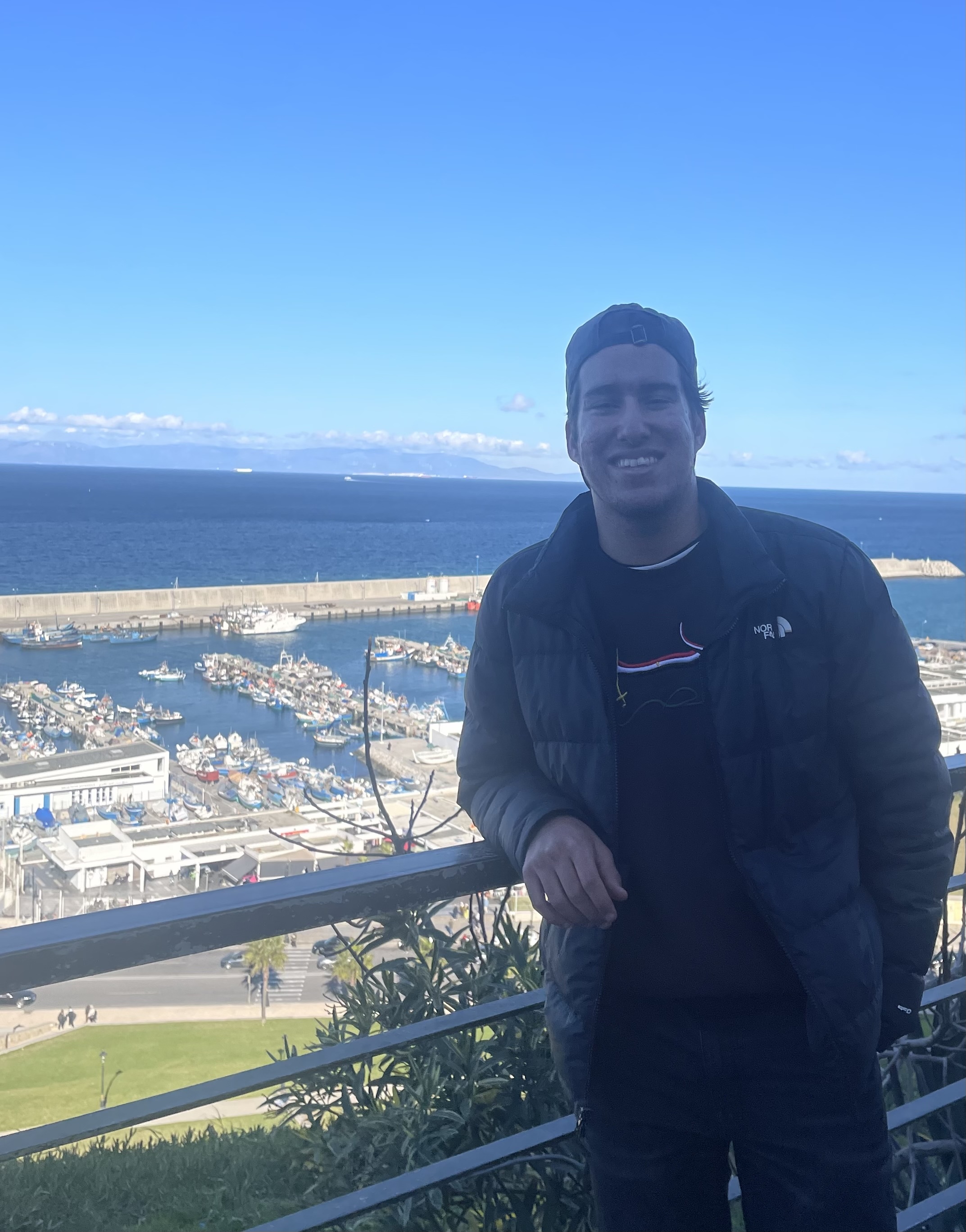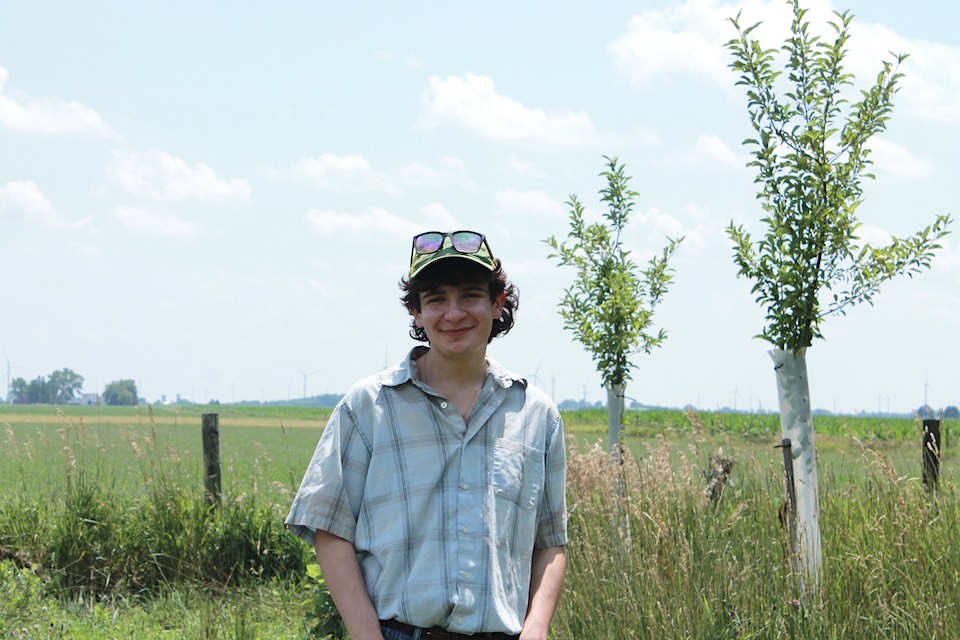Davis Projects for Peace
2025 Davis Projects for Peace Grantee

The Brandeis awardee for Summer 2025 is Allan Feldman '26. His project, entitled "Empowering Egyptian Women Through Community Automobile Education and Ride-sharing" will be carried out in Cairo, Egypt.
This project involves community building and education for women in Egypt to address and counter the experience of female sexual harassment within Egypt's transportation system. Allan aims to design, facilitate, and host hands-on automobile repair and mobility workshops for women; create dialogue of women sharing their experience surrounding transportation; and promote, film, and share interviews of workshop participants and women in the field as a means of providing both inspiration for carpooling and practical guidance for solo female travel.
Allan's faculty mentor is Professor Jon Anjaria of the Brandeis Anthropology Department.
Read about the work of the Projects for Peace 2025 Cohort
See past Projects for Peace led by Brandeis students
 Daniel Bloc, '25, 2023 Projects for Peace grantee
Daniel Bloc, '25, 2023 Projects for Peace grantee
About Projects for Peace
Projects for Peace is a global program that partners with educational institutions to identify and support young peacebuilders. Each year, 125 or more student leaders are each awarded a grant of $10,000 to implement a Project for Peace.
Since 2007, the program encourages college students to develop innovative, community-centered, and scalable responses to the world’s most pressing issues. Successful Projects for Peace grantees take time to consider what peace could look like and how they might meaningfully contribute. They also have a deep appreciation for the context, communities, and/or cultures where the project takes place, ready to dedicate a summer to their vision for peace.
Intentionally, no clear definition is offered so as not to limit the imagination. We leave it up to the students to define what a "project for peace" might look like. We hope to encourage creativity, innovation, and entrepreneurship. The overall program is to be worldwide in scope and impact, but specific projects may be undertaken anywhere – and may be as grassroots as desired, including in the United States.
Eligibility and Application Process
Undergraduate students (including seniors who would complete their projects after graduation) are eligible to apply. Groups of students, as well as individual students, may submit proposals.
Each Project for Peace must have a Faculty Mentor for the project whose area of expertise aligns with the project's goals. Learn more about Faculty Mentor Guidelines.
To be considered for the Davis Projects for Peace Grant, please complete the online application and submit materials by January 16, 2026. All proposals must follow the Guidance from Davis Projects for Peace.
For inquiries, additional information, or to schedule a meeting to discuss your project proposal, please contact our Director, Sally Warner.
Apply now for 2026 Projects for Peace
Expand All
All proposals must follow the
Guidance from Davis Projects for Peace for formatting.
- Project Proposal (2 pages) that includes…
- 3-5 sentence abstract describing the project (who, what, where, how);
- Expected outcomes and prospects for future impact
- Project Budget
- Personal Statement (1-2 pages)
- Transcript (unofficial accepted)
- Resume
- Letters of support from…
- Davis Projects for Peace Faculty Mentor (must be a Brandeis faculty member)
- An additional recommendation from a Brandeis faculty or staff member
- The partner organization in the location where the project will be performed (if applicable)
Submit your 2026 Davis Projects for Peace Application here.
December 4-8, 2025 | Open office hours at COMPACT to discuss your project application
Jan. 16, 2026 | Application Deadline
Late-January 2026 | Review Committee begins processing applications
February 2026 | Applicants notified of Committee’s decisions
Frequently Asked Questions
Expand All
Intentionally, no clear definition is offered so as not to limit the imagination. We leave it up to the students to define what a "project for peace" might look like. We hope to encourage creativity, innovation and entrepreneurship. The overall program is to be worldwide in scope and impact, but specific projects may be undertaken anywhere and may be as grassroots as desired, including in the United States.
Some of the most compelling projects to date have addressed one or more of the following:
- Contributing to conflict prevention
- Ameliorating conditions leading to violence/conflict
- Looking for and building on shared attributes among differing groups
- Fostering diplomacy or otherwise contributing to advancing peace processes underway
- Promoting economic opportunity and entrepreneurship among those in areas affected by conflict
- Finding creative ways to bring people on opposite sides of issues together, such as through art, sports, music, or other techniques to promote a common humanity
- Developing leadership and mediation skills training for those in conflict or post-conflict societies
- Starting or leveraging initiatives, organizations (e.g. education, health) or infrastructure projects to build/rebuild community
Examples:
Past Brandeis Recipients
Project archive from Middlebury College
Annual viewbooks from Middlebury College
Undergraduate students at any of the partnering institutions (including seniors who would complete their projects after graduation) are eligible. Groups of students from the same campus, as well as individual students, may submit proposals.
To be considered, a group of students must submit all elements of the application as one application on behalf of the group. The proposal should list all participating members. Students are strongly encouraged to contact Megan Moran to discuss their proposal prior to submission. Communication between students writing proposals and the Davis Projects for Peace office is prohibited.
The campus liaison, Sally Warner, will guide the internal campus procedures for announcing and promoting the opportunity to students; organizing the selection committee to evaluate the proposals submitted; communicating results on a timely basis to the Davis Projects for Peace office; and distributing the awarded grant funds for the winning proposal(s) on campus. Final review and approval of all recommended proposals from individual campuses rest solely with the office of the Davis Projects for Peace Program which will then forward the appropriate grant funds to each school with the winning project(s).
The intention is to fund 100 or more projects at more than 90 Projects for Peace partner institutions. Therefore, all involved schools are invited to select and submit one proposal for funding and one alternate proposal that might be funded as well. Final decisions on all grants are made by the Davis Projects for Peace Program office. Grants are made upon assurance that the project proposed will, in fact, be undertaken during the summer of selection.
Davis Projects for Peace is being funded by Kathryn W. Davis, a lifelong internationalist and philanthropist. Davis earned a BA from Wellesley, an MA from Columbia and a PhD from the University of Geneva. She was the mother of Shelby M.C. Davis, who funds the Davis Projects for Peace Program, which currently involves more than 90 American colleges and universities. Mrs. Davis has felt some urgency to spark initiatives for building prospects for peace in the world, $1 million on her behalf is committed to funding 100 $10,000 projects for peace. She always believed that today's youth - tomorrow's leaders - ought to be challenged to formulate and test their own ideas. Davis passed away in 2013 at the age of 106.
Davis philanthropy commits over $1 million each year to fund Projects for Peace. While Davis funding per project is limited to $10,000, projects with larger budgets are welcome with co-funding from other sources — such as other philanthropists, a college or university, foundation, NGO/PVO or students’ own fundraising.

 Daniel Bloc, '25, 2023 Projects for Peace grantee
Daniel Bloc, '25, 2023 Projects for Peace grantee